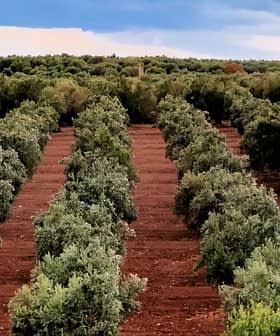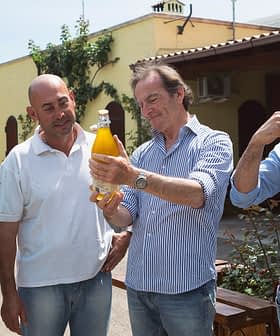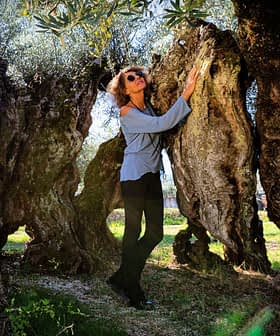 6.1K reads
6.1K readsNews Briefs
Police in Spain and Italy Uncover Olive Oil Fraud Ring
A coordinated Europol investigation led to the seizure of 260,000 liters of adulterated olive oil and the arrest of 11 individuals near Ciudad Real in central Spain, who were diluting extra virgin olive oil with non-virgin and lampante oil to enter the legal market. The investigation also identified three mills in Tuscany and Sicily, Italy involved in the illegal operation, with law enforcement officials noting an increase in organized crime attempts to profit from the olive oil sector due to high prices and low production volumes.
A coordinated Europol investigation involving Spanish and Italian police resulted in the seizure of 260,000 liters of adulterated olive oil and the arrest of 11 individuals near Ciudad Real in central Spain.
According to the investigators, the arrested individuals’ goal was to dilute extra virgin olive oil with non-virgin and lampante oil, which would have allowed the illegal operation to achieve a chemical profile for their product sufficient to enter the legal olive oil market.
Lampante, the lowest grade of olive oil, inedible unless refined, sells for an average of €6.37 per liter compared with the €7.45 per liter of extra virgin olive oil in Spain’s benchmark market, Jaén.
See Also:Trade Group Announces Olive Oil Quality Testing InitiativeIn a statement, investigators also announced the recovery of many containers, four vehicles, digital documents, €91,000 in cash and other physical evidence pointing to an international counterfeiting ring.
The investigation also identified three mills in Tuscany and Sicily, Italy, which are believed to be directly involved in the illegal operation.
Investigators acquired several documents and digital files in those companies’ offices, uncovering efforts to collect olive oil from different sources. One of the companies was sanctioned on the spot for illegal olive oil labeling.
The whole operation was triggered by a routine inspection of the contents of a tanker truck not far from Ciudad Real.
According to the investigators, such anti-counterfeiting operations are increasingly common.
In their view, the record and near-record extra virgin olive oil prices of the past year, along with the significant drop in production, have tempted unscrupulous actors to try and profit from the situation.
Last September, Spanish officials launched a broad investigation against the theft of extra virgin olive oil from a mill in Carcabuey, Córdoba, in the heart of Andalusia, the most important olive oil-producing region in the world.
Similar events occurred in the last few weeks in other relevant producing regions, such as Puglia, Italy. Law enforcement officials noted how organized gangs are trying to profit from the abundant Apulian production by stealing olives and olive oil in the area.
In 2022, Italian police prevented 2.3 million liters of virgin olive oils from being sold as extra virgin olive oil, one of the most relevant anti-counterfeiting operations in the sector.
While considered good quality, virgin olive oils have a higher acidity than extra virgin and are sold at significantly lower prices than extra virgin olive oil.
While routine inspections and investigations continue across the olive sector, the volumes of counterfeited olive oil discovered by law officials remain very low compared to total olive oil trade figures.
A 2015 report from the Food and Drug Administration cited by the New York Times showed how less than five percent of 88 olive oils sold in supermarkets in the United States were adulterated.
These findings were significant, considering the U.S. imported 360,000 tons of olive oil in the 2022/23 crop year.
The 260,000-liter counterfeiting operation uncovered by the Spanish and Italian police, while significant for its criminal goals and the modality of execution, amounts to a negligible amount compared to total olive oil production in Spain and Italy.
In the 2022/23 crop year, characterized by low production volumes, Spain and Italy produced slightly more than one million tons, about one billion liters, most of which were extra virgin olive oils.









